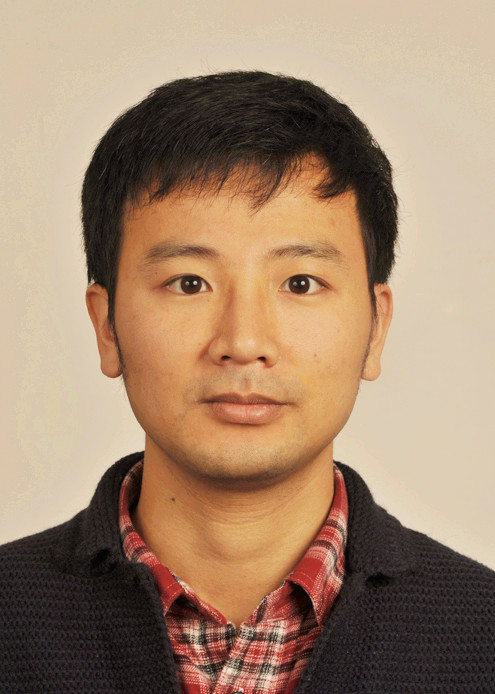
Chloroplast proteostasis and plant development
National Key Laboratory of Plant Molecular Genetics
Qihua Ling
Personal Profile
2020 – present Principle Investigator, CAS Center for Excellence in Molecular Plant Sciences, Institute of Plant Physiology and Ecology, Chinese Academy of Sciences
2013 – 2020 Postdoctoral researcher, Department of Plant Sciences, University of Oxford, UK
2008 – 2013 Postdoctoral researcher, Department of Plant Sciences, University of Leicester, UK
2003 – 2008 DPhil of Genetics, Shanghai Institutes for Biological Sciences, Chinese Academy of Sciences
1999 – 2003 BSc of Science in Biotechnology, School of Life Sciences and Biotechnology, Shanghai Jiaotong University
Research Work
In plant cells, chloroplasts exist not only to carry out the photosynthesis process, but also to perform other remarkably broad and diverse set of functions. For example, they are at the heart of the mechanisms that plants use to respond to environmental cues. Recent studies revealed that proteolytic pathways for chloroplasts, the ubiquitin-proteasome system (UPS) and autophagy, contribute to the photosynthesis and plant tolerance of abiotic stress, such as, drought and salinity. My long-term research goal is to provide a mechanistic understanding about how chloroplast proteome is regulated in order to control photosynthesis and plant growth. In my lab, I will focus on three major questions under this theme using model plants such as Arabidopsis and Maize. (1) How does the UPS recognize and process its substrates? (2) How are chloroplast proteins recognized for autophagic degradation and what are the key components? (3) How chloroplasts in C4 plants are differentiated?
Main Achievements
Dr. Qihua Ling and his colleagues revealed for the first time that the UPS controls chloroplast protein import through an E3 ligase, SP1 (Ling Q, Huang W et al., 2012, Science). In addition, they showed that SP1 operates as part of a broader pathway, named CHLORAD (Ling Q, Broad W, et al., 2019, Science). CHLORAD involves a retrotranslocation system comprising SP2 (Omp85-family channel) and CDC48 (AAA-ATPase molecular motor) for the extraction of ubiquitinated chloroplast proteins to the cytosolic proteasome for degradation. Such system is important in plant development and abiotic stress responses (Ling Q and Jarvis P, 2015, Current Biology).
Publications
1. Ling, Q.#, Broad, W.#, Trosch, R., Topel, M., Sert, T.D., Lymperopoulos, P., Baldwin A., Jarvis, RP.* (2019) Ubiquitin-dependent chloroplast-associated protein degradation in plants. Science 22;363(6429). (Highlighted in Molecular Plants and Plantae, Recommended by F1000Prime)
2. Wu, GZ., Meyer, EH., Richter, AS., Schuster, M., Ling, Q., Sch?ttler, MA., Walther, D., Zoschke, R., Grimm, B., Jarvis, RP., Bock, R.* (2019) Control of retrograde signalling by protein import and cytosolic folding stress. Nature Plants 5(5):525-538.
3. Ling, Q.#, Li, N.#, Jarvis, RP.* (2017) Chloroplast Ubiquitin E3 Ligase SP1: Does It Really Function in Peroxisomes? Plant Physiology 175(2):586-588.
4. Bédard, J.#, Tr?sch, R.#, Wu, F., Ling, Q., Flores-Pérez, ú., T?pel, M., Nawaz, F., Jarvis, RP.* (2017) New Suppressors of the Chloroplast Protein Import Mutant tic40 Reveal a Genetic Link between Protein Import and Thylakoid Biogenesis. Plant Cell. 29(7):1726-1747. (Recommended by F1000Prime)
5. Ling, Q. and Jarvis, RP.* (2016) Plant Signaling: Ubiquitin Pulls the Trigger on Chloroplast Degradation. Current Biology 11;26(1):R38-40.
6. Ling, Q. and Jarvis, RP.* (2015) Regulation of Chloroplast Protein Import by the Ubiquitin E3 Ligase SP1 Is Important for Stress Tolerance in Plants. Current Biology 5;25(19):2527-34.
7. Ling, Q. and Jarvis, RP.* (2015) Functions of plastid protein import and the ubiquitin-proteasome system in plastid development. Biochim Biophys Acta. 1847(9):939-948. [Invited review]
8. Ling, Q. and Jarvis P.* (2013) Dynamic regulation of endosymbiotic organelles by ubiquitination. Trends in Cell Biology 23(8):399-408. [Invited review]
9. Ling, Q.#, Huang, W.#, Baldwin, A. and Jarvis, RP.* (2012) Chloroplast biogenesis is regulated by direct action of the ubiquitin-proteasome system. Science 338(6107):655-659. (Highlighted in Science Perspective, Nat Rev Mol Cell Biol., Recommended by F1000Prime)
10. Huang, W.#, Ling, Q.#, Bédard, J.#, Lilley, K. and Jarvis, RP.* (2011) In vivo analyses of the roles of essential Omp85-related proteins in the chloroplast outer envelope membrane. Plant Physiology 157(1):147-159. (cover story)
11. Ling, Q., Huang, W. and Jarvis, RP.* (2011) Use of a SPAD-502 meter to measure leaf chlorophyll concentration in Arabidopsis thaliana. Photosynth. Res. 107(2): 209-214.